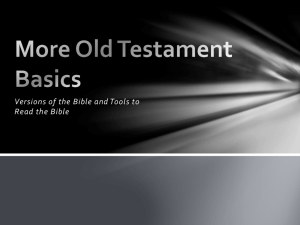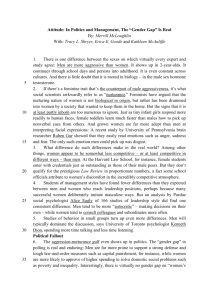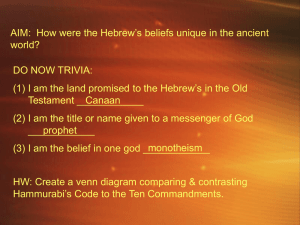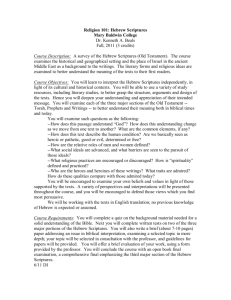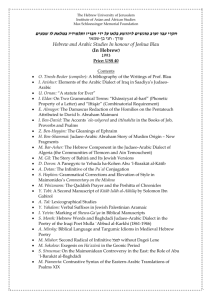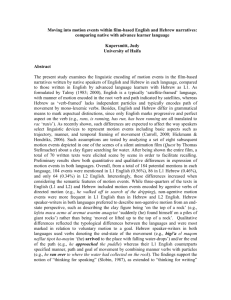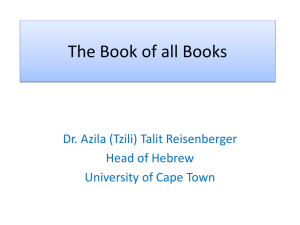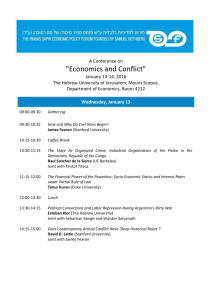God`s Effective Word
advertisement
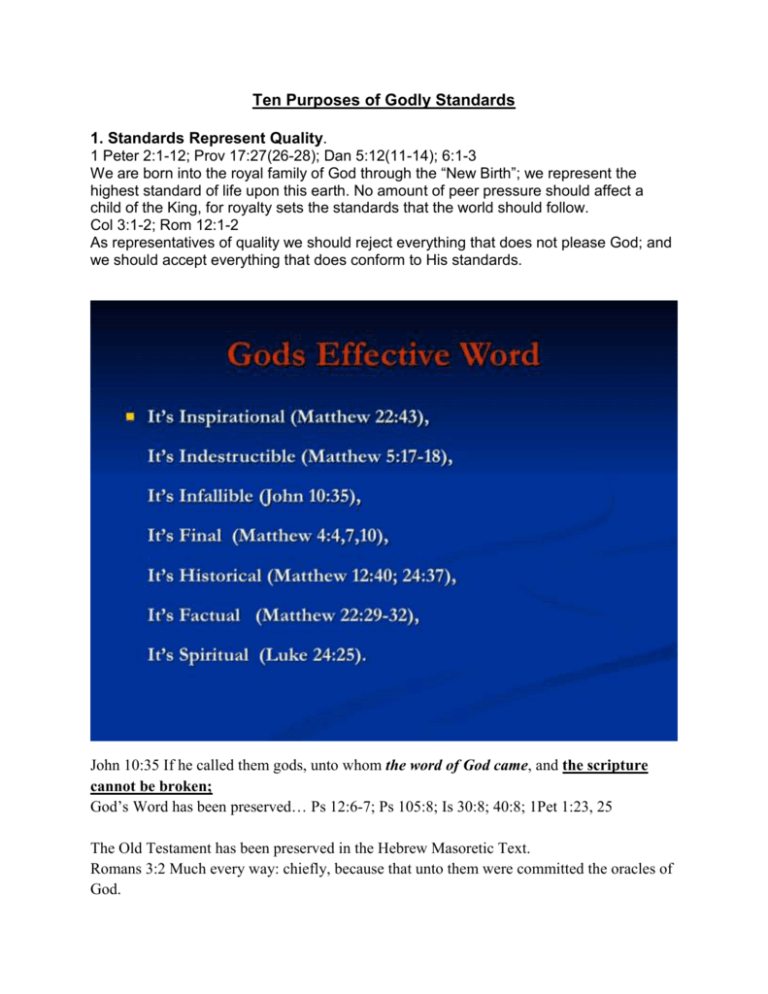
Ten Purposes of Godly Standards 1. Standards Represent Quality. 1 Peter 2:1-12; Prov 17:27(26-28); Dan 5:12(11-14); 6:1-3 We are born into the royal family of God through the “New Birth”; we represent the highest standard of life upon this earth. No amount of peer pressure should affect a child of the King, for royalty sets the standards that the world should follow. Col 3:1-2; Rom 12:1-2 As representatives of quality we should reject everything that does not please God; and we should accept everything that does conform to His standards. John 10:35 If he called them gods, unto whom the word of God came, and the scripture cannot be broken; God’s Word has been preserved… Ps 12:6-7; Ps 105:8; Is 30:8; 40:8; 1Pet 1:23, 25 The Old Testament has been preserved in the Hebrew Masoretic Text. Romans 3:2 Much every way: chiefly, because that unto them were committed the oracles of God. Acts 7:38, Heb 5:12, 1 Pet. 4:11 The scribes in copying the “oracles of God” were very, very, careful. Some Jews teach the loss of one Word in the Tanach would bring about the end of the world. Scribes had rules: 1. Special ink must be used following a formula which made it black. 2. The scribe must read/think the individual Word he is copying then say the Word aloud then write the Word. 3. If parchment is used, it must be made by a Jew from a kosher animal. 4. The scribe must clean his pen before writing the Word ‘Elohim’ which is Hebrew for ‘God’. He must wash his body before he can write the Word ‘Jehovah’. 5. Every Letter was counted. If a Letter was added or missed the manuscript was destroyed. (Because of the care in copying, a manuscript copied in Tiberius would be perfect. A manuscript copied in Egypt at a later date may not have been treated with such a careful manner.) A. Reasons for studying the Bible. Ps. 119:11- Word put in heart Matt 24:35 Word will not pass away John 12:48(44-50), 1 Tim 4:13; 2 Tim 2:15(11-15); 2 Tim 3:16(15-16) Rev 20:12-15 B. Biblical Reasons to Pray Luke 18:1, Acts 4:31(16-33); Eph 6:18; 1 Tim 2:1, 8 C. Biblical Reasons to Fast Isaiah 58 chap; matt 17:21 Definitions: Masoretic text, (from Hebrew masoreth, “tradition”), traditional Hebrew text of the Jewish Bible, meticulously assembled and codified, and supplied with diacritical marks to enable correct pronunciation. This monumental work was begun around the 6th century AD and completed in the 10th by scholars at Talmudic academies in Babylonia and Palestine, in an effort to reproduce, as far as possible, the original text of the Hebrew Old Testament. Their intention was not to interpret the meaning of the Scriptures but to transmit to future generations the authentic Word of God. To this end they gathered manuscripts and whatever oral traditions were available to them. Encyclopedia Britannica The Tanach is a name used in Judaism for the canon of the Hebrew Bible. The Tanach is also known as the Masoretic Text or the Miqra. The name is an acronym formed from the initial Hebrew letters of the Masoretic Text's three traditional subdivisions: The Torah ("Teaching", also known as the Five Books of Moses), Nevi'im ("Prophets") and Ketuvim ("Writings")— hence TaNaKh. Revelation- direct inspiration from Jehovah/Jesus written down or spoken without errors or omissions by a heaven bound secretary. Truth the writer could not have known but is revealed by Jesus/Jehovah as He gives spiritual understanding to His followers. Illumination- refers to a Christian receiving knowledge and wisdom concerning scripture. Infallibility- means the Hebrew, Aramaic, and Greek Holy Bible is true. Translation- defined as a human(s) translating one language to another language. The translator may or may not be heaven bound. Because of man’s state of depravity, translation to a perfect Holy Bible may not be possible. Manuscript-are ancient handwritten books, letters, lectionaries, etc… Original manuscripts which may be scripture are written in Hebrew, Aramaic, or Greek. They may be made out of papyrus as scrolls. They may be in book (codex) form. They use letters such as Greek uncials or cursives. Inspiration- theopneustos comes from the words ‘Theos’ which means ‘God’, and from the word ‘pneo’, which means’ to breathe’. The Words are God’s words not the Word choices of Paul or Peter, etc. Prophecy-words directly from God- The Word Choices are only God’s Decisions.



